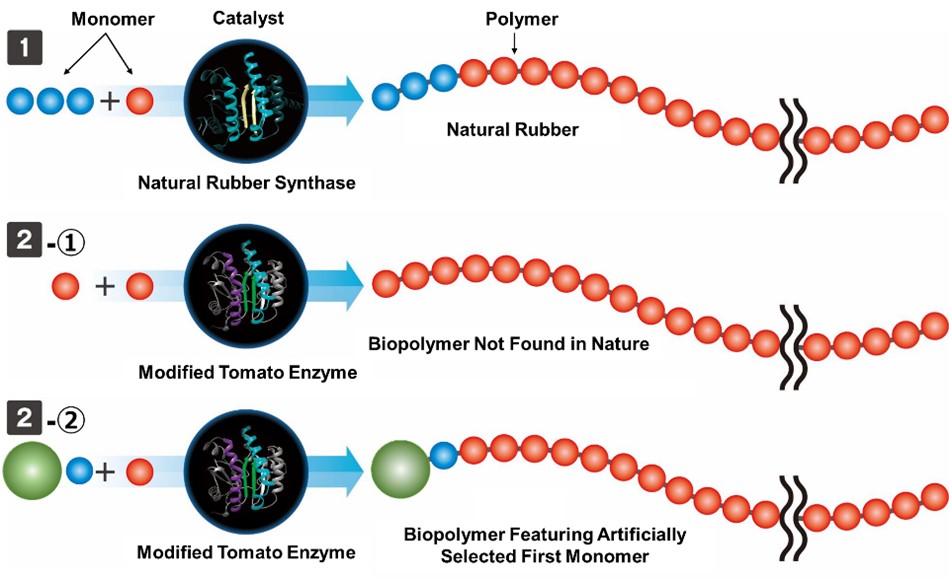Successful Synthesis of Biopolymer for Development of Ultimate Fuel-Efficient Tires~Contributing to Sustainable Societies through Natural Rubber Bioengineering~
Oct. 13. 2022

Our research team had previously succeeded in synthesizing a biopolymer not found in nature by first identifying the segment of natural rubber synthase that plays a key role in determining polymer chain lengths and then replacing this segment with a similar segment of a specially modified enzyme derived from tomatoes.
Having since furthered our research on modified tomato enzymes, we recently discovered that the use of modified tomato enzymes weakens initial monomer selectivity, which in turn allows for synthesis starting from monomers other than the initial monomers typically involved in the initiation of polymerization. In addition, by taking advantage of this newfound characteristic, we have now succeeded in synthesizing entirely new biopolymers incorporating initial monomers that we have selected at will.
 |
|
Image of Synthesis (Polymerization) Reaction with Tomato Enzyme as Catalyst |
We recently announced the results of our research at the 33rd Annual Association for Advancement of Industrial Crops (AAIC) Meeting*3 held in Bozeman, Montana (USA) from October 9 through October 12, 2022. Moving forward, the Sumitomo Rubber Group will continue working to contribute to the realization of sustainable societies through our ongoing efforts to ensure a stable supply of natural rubber while providing tires that combine safety and peace of mind with reduced environmental impact.

※1 & 2. A monomer is a single molecule that can bond with other monomers to form chainlike macromolecules called polymers. “Polymerization” refers to the series of chemical reactions that bind monomers together to form polymers.
※3. Official Homepage of the 33rd Annual Association for Advancement of Industrial Crops (AAIC) Meeting
<Reference>
■Previous News Releases

